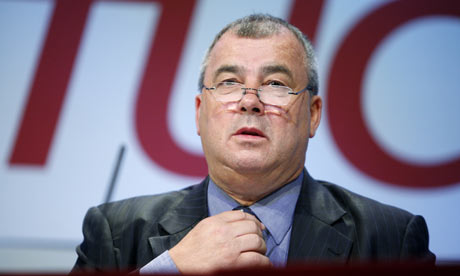Yesterday saw the launch of the industry initiative Music Matters. It's a two-pronged project with a range of short, animated films, illustrating how musicians have inspired and influenced people over the years. Currently, the artists featured are Blind Willie Johnson, John Martyn, Kate Bush, Sigur Ros, Nick Cave, Louis Armstrong, the Jam and the Fron Choir (who gave a beautifully moving performance at the launch).
The second part of the initiative is a trust mark, which will help music fans to identify if a site is legal. In a previous blog, I have advocated a Fair Trade mark for music sites that treat artists fairly. Though the Music Matters trust mark will not go that far, it's a step in the right direction. I sometimes meet fans who assume that professional-looking sites are legit – especially ones that charge a fee for downloads. This is not always the case.
But for the trust mark to work, we must first establish if music does, indeed, matter. If it does, it has an intrinsic value. I can only assume that, since you've taken the time to visit Guardian.co.uk/music, then music matters to you. I became a musician because music was source of pure joy when I was growing up, and the first thing I turned to when I felt misunderstood and lonely.
That's why it surprised me to learn that 56% of the UK population didn't make a single music purchase in 2008. Does this mean that, to the majority of people, music is just not that important? According to the BPI's latest figures, the highest percentage of music buyers are aged between 30 and 39 (52% of them bought music in 2008). Only 34% of 12-19-year-olds bought music, but the ones who did spent the most on average.
It's true that music has to compete with many other forms of entertainment, more than ever before. Still, figures released this week by the Entertainment Retailers Association show that the recession has hit music less than other forms of entertainment retail. Volume-wise (ie, in units), music sales (including music DVDs) went down by 0.6% between 2008 and 2009 while videogames went down by 9.5%.
But music sales statistics don't necessarily say how much music matters to people – the value is also in how we listen. In Piers Morgan's recent interview with Simon Cowell, the music mogul admitted he would never sit down and just listen to an album, giving it his undivided attention. He just couldn't see the attraction in it. He obviously would not follow the instructions on Gil Scott-Heron's latest album (turn off your mobile phone, don't listen on a portable player or in the car, get rid of all distractions and listen all the way through). In a recent Panorama special on the Digital Economy Bill, the parents of teenagers who downloaded music illegally shrugged their shoulders, saying: "Well, it's just music, isn't it."
In the last few years, many "experts" have been saying that the music industry (note, by that I don't mean just the record industry) should make up the loss of revenue from recorded music by making money from merchandising, branding and synchs (advertising, games etc). Music manager Chris Morrison, who's involved with Music Matters, disagrees. "Try telling Damon Albarn and Grace Jones that they're brands."
The Music Matters initiative is trying to highlight that music has a value in itself. Morrison – who manages Blur, Gorillaz and Grace Jones – mentions the Radiohead In Rainbows pay-what-you-like model. "How offensive it would have been for someone to not pay a penny. Why do you want to have it if it doesn't hold any value to you?" he says. "It's not about how we slice the cake, it's about if there is a cake."
Some believe that because music is much more available than ever before, like water from a tap, it has become disposable. Many people who have tens of thousands of tracks on their hard drives barely listen to a fraction of them. When I was growing up I'd save money to buy an album. That gave music value in itself, and I'd listen to the same record for months, years even. I rarely bought merchandise – just music. So admittedly a campaign trying to establish that music matters seems, to people like me, like a campaign promoting breathing (Popjustice has already responded to the Why Music Matters campaign: "How about 'because it's fucking amazing'?").
Not everyone will have grown up with this relationship to music, however. Music Matters plans to show the short films in schools. If watching them inspires children, it would accomplish something important – it would remind them of music's intrinsic emotional value. It's a value that isn't mentioned enough in debates about the future of music, but it's why music matters to me.







